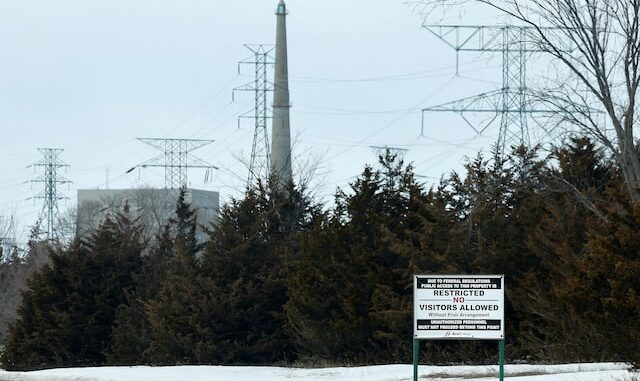
WASHINGTON, May 3 (Reuters) – The U.S. has been preparing since 2022 for the possibility that Russian President Vladimir Putin would stop selling it nuclear power fuel, and a pending ban on Russian imports will help boost domestic capacity to process uranium fuel, the outgoing top nuclear energy official told Reuters.
The U.S. Senate passed legislation on Tuesday that bans the imports from Russia, the latest move by Washington to disrupt Putin’s ability to pay for the full-scale invasion of Ukraine that began in 2022. The ban, which is expected to be signed by President Joe Biden, starts 90 days after enactment, although it allows the Department of Energy to issue waivers in case of supply concerns.
The move has led to fears that Putin could retaliate by freezing exports to the U.S. boosting uranium prices. Russia supplied about 24% of the uranium used by reactors in the U.S. in 2022, and was its top foreign supplier.
But Kathryn Huff, the DOE’s assistant secretary for nuclear, who steps down on Friday, told Reuters the U.S. is prepared for any scenario.
“The reality is this: over the last few years there has been a very real and present possibility that Russia could stop abruptly sending enriched uranium to the United States.”
Countries including Canada, France and Japan will help the U.S. deal with an “allied alternative” to Russian uranium, Huff said.
And the imports ban would unlock $2.7 billion from previous legislation for building out the domestic uranium industry.
“A paired structure in which we invest in new conversion and enrichment capacity and then protect those investments with some import restrictions is what’s required,” to cut dependence on Russia, said Huff, who will return to university teaching and nuclear research.
Nuclear plants only refuel about every two years and contracts are worked out years in advance. Huff said the U.S. has “just about enough time” or about three or four years, to stand up new uranium conversion and enrichment capacity and replace Russian imports.
In the U.S., the Vogtle nuclear plant in the state of Georgia, opened this week after years of delay. But no new construction is on the books, leading to concern the U.S. will not be able to meet Biden’s 2050 goal of decarbonizing the economy.
Huff expects the next plant to come on line will be Palisades, in Michigan. Holtec, the owner, is trying to reopen a nuclear plant for the first time in U.S. history. Palisades shut in 2022, 10 days early due to a problem with a control rod.
Opponents of reopening Palisades, which opened in 1971, say the reactor vessel is vulnerable to cracking, a situation called embrittlement.
Holtec, which got a $1.5 billion DOE loan in March, will have to refurbish the plant to get approval from U.S. regulators, Huff said. “I fully expect it will operate better than it was operating before once they complete those refurbishments.”
Holtec spokesperson Patrick O’Brien said Palisades, which still needs reauthorization, will undergo thorough inspections before any restart.



